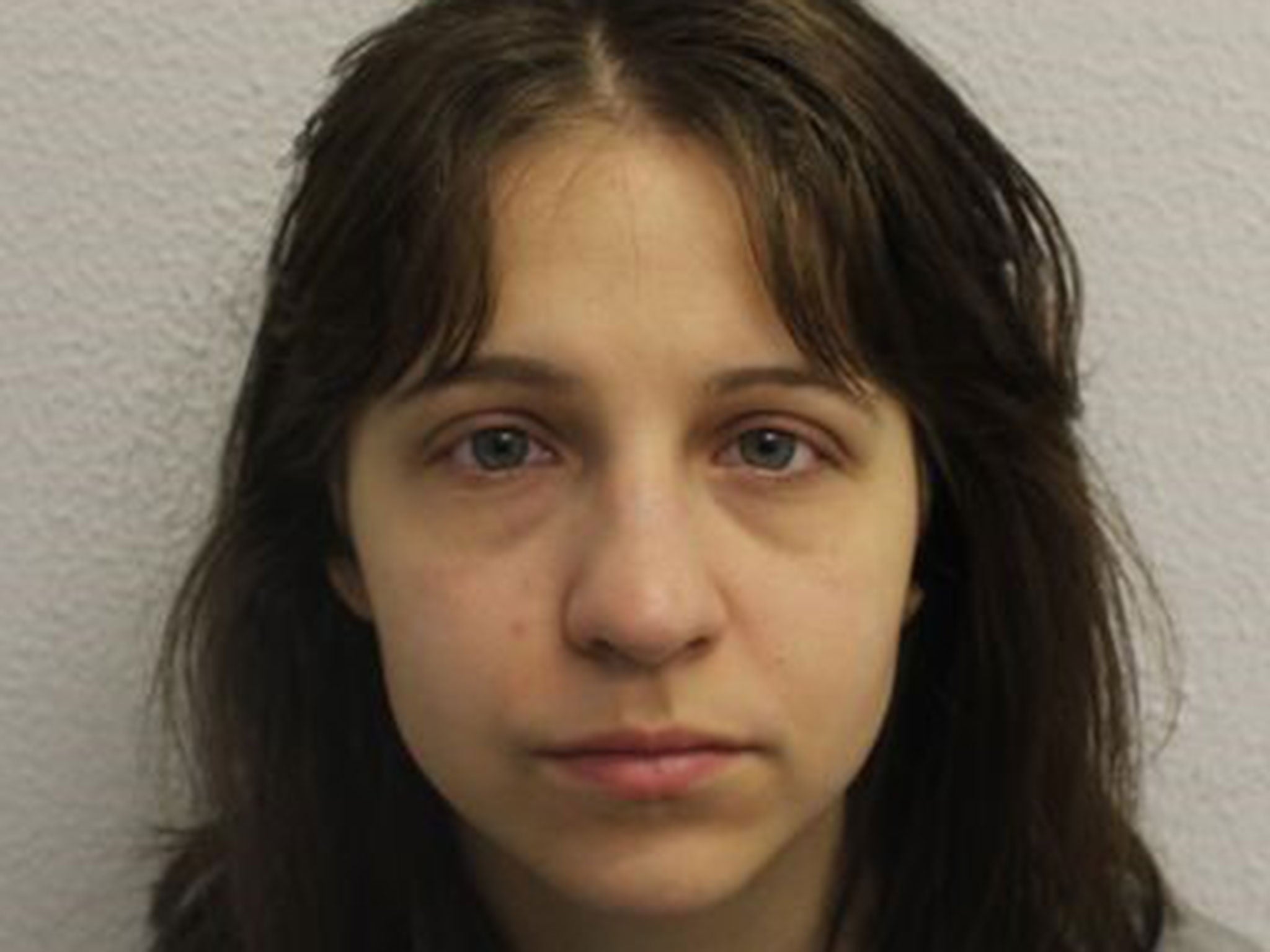Woman who faked her own rape and kidnap used 20 Instagram accounts for cyber-stalking
Jessica Nordquist warned she faces prison time after leading police on wild goose chase

A woman faked her own rape and kidnap as part of an elaborate cyber-stalking campaign has been told she will likely be imprisoned.
Jessica Nordquist's campaign when she began sending a torrent of text messages and emails to one of her male colleagues at the London advertising firm where they worked, Snaresbrook Crown Court heard.
The 26-year-old American also spread untrue rumours about the man, who has not been named, using more than 20 fake Instagram accounts she had created, targetting bosses at the company and several of their clients in a bid to ruin his reputation.
As her campaign continued, police arrested and interviewed her in January, before issuing her with a warning, the court heard.
During a visit to her home they discovered several SIM cards from multiple phone networks and a toy deer she had stolen from the man’s desk.
Rather than heed their warning, Nordquist escalated her campaign.
In April, her family, friends, colleagues and the victim all received an email claiming to be from a criminal gang which had kidnapped and raped Nordquist.
Attached were photos of the 26-year-old, naked, bound and gagged.
More emails followed, claiming the gang had now broken her fingers.
Officers from London's Metropolitan Police sealed off Nordquist’s flat a crime scene and launched an investigation with specialist kidnap and modern slavery officers.
Two days later, thanks to co-operation from mobile phone companies, Scottish police pinned down her location to a B&B in Aviemore, in the Scottish Highlands.
But when officers found her, it quickly became clear that the entire rape and kidnap tale had been invented by Nordquist herself.
She was found she had disguise kits, camping equipment and booking confirmations from a string of accommodation sites further north in the Highlands where she had planned to hide out.
In a futile effort to cover her tracks, Nordquist gave the police a false name and then tried to hide two mobile phones in a bin in the toilet at a doctor's surgery, where officers had taken her to check she was fit to be detained.
Scott McPherson, director fo the Crime Policing and Fire Group said it put "police under significant strain with resources they have".
Nordquist appeared at Thames Magistrates’ Court on 23 April where she pleaded not guilty to all offences.

But she was found guilty of talking, sending malicious communications, and perverting the course of justice at Snaresbrook Crown Court.
Judge Paul Southern adjourned sentencing to a date to be fixed and remanded Nordquist in custody.
He said: "I can not see how an immediate custodial sentence can be avoided. The question is the length of it."
He added: "During the period these offences were committed Ms Nordquist was admitted to a psychiatric facility. We know that the police were concerned enough when they found her at Aviemore to take her to have a mental heath assessment."
DC Joanne Farrell, part of the local Tower Hamlets police unit which had first responded to the supposed kidnapping, said it was still unclear why Nordquist had gone to such lengths.
Support free-thinking journalism and subscribe to Independent Minds

“Infatuation or revenge, Nordquist’s motivation remains unknown,” she said.
Nordquist had pursued a “relentless campaign of stalking” which had caused immense distress and embarrassment to the victim and his family, friends and colleagues, she added.
“Throughout the investigation and trial, Nordquist has shown she is a compulsive liar and deeply manipulative," she said. "She was offered numerous opportunities to admit her offending and receive help but she repeatedly refused to do so, forcing the need for a trial.
“Her actions diverted police resources from real victims of crime. Her lack of technical expertise and clumsy attempts to cover her tracks by 'hiding in plain sight' ultimately led to her conviction, which would not have been possible without the cooperation of UK mobile phone networks and other businesses – for which the Metropolitan police are grateful.”
Bookmark popover
Removed from bookmarks